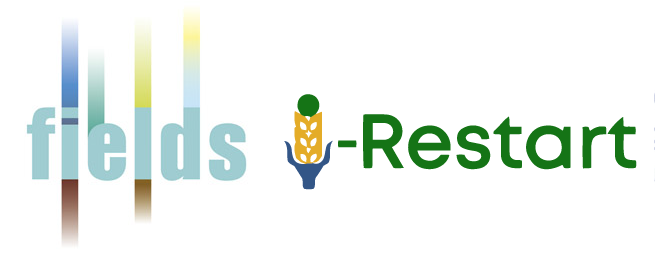Submitted by Francesca Sanna on
WP:
Activity title:
Activity description:
Based on the results of WP1 and the prioritisation strategy, the partners (led by WUR) will define the EU Action Plan to overcome the skill gaps related to agriculture and forestry, in the three areas of Sustainability, Digitalisation and Bioeconomy, soft skills for the implementation of these concepts in agriculture and forestry using innovative training on these skills.
To this exercise, will participate not only agriculture and forestry stakeholders but also agrifood association (buyers of 72% of the EU raw materials) and forest industries, because the three areas above mentioned could improve the efficiency of the sector and marketability of the green products generated by pursuing sustainability, bioeconomy in digitalisation in the agriculture and forestry sector. Thus, the benefits of the action will extend from the primary sector to the whole chain, including the industrial sector, and in turn the consumers as well.
The EU strategy will include the key aspects and general guidelines that will be further completed by the roadmap at a national level in order to support knowledge transfer and skill creation for agriculture and forestry: sustainability (natural resources, water and energy, energy saving), digitalisation (precision farming, traceability, big data, IoT, modernisation) bioeconomy (renewable energy production, byproducts and coproducts from value chain in a circular economy approach, by farmers, industries). Soft skills uptake will also be considered (entrepreneurship, staffing, capacities, communication, reputation, business models and plans).
The EU strategy will address the following aspects:
- need to adapt, extend or modify existing skill framework or develop national legislation to support knowledge transfer and skill creation - technological development and training needs
- flexible training for professionals and certified training for VET trainees
- harmonised standards and quality in training in agriculture
- specific apprenticeship schemes/stages for agriculture and agrifood and forestry value chain
- dissemination/exploitation of existing results and exchange of best practices
- business models to overcome the skill barriers to promote further the collaboration among actors in the supply chain, namely workers, training centres, farmers, other producers and industries.
- raise awareness on available innovative skills for agriculture and forestry
The target groups are expected to be highly heterogeneous with different fields of interest and various levels of knowledge and transfer needs. Training subjects and methodology will be chosen accordingly in order to achieve a highly acceptable training format. For instance the issue of agriculture sustainability rather needs awareness raising; digitalisation can be taught presenting best practice examples; while the knowledge in bio-economy can optimally be transferred through operational support and guidelines.
THE HAB and COPA – COGECA will review the EU strategy.
A specific focus will be put on gender and ageing of the worker, with the modification of the communication around the sector and study of trans-generational training scheme.
AERES as leader of WP4 and CONFAGRI as leader of WP2 will participate in strategy formulation, for their knowledge on technical training implementation.
FDE and PlantETP will connect the Implementation action plan of ETP to this strategy involving SMEs point of view
WUR will be responsible for the overall strategy writing and all partners, with more involvement of the farmer representative ones, will participate to the writing and validation. After completion of the training pilots and activities of WP5, the EU strategy will be refined.
D2.3: European strategy (M21 & M45)
